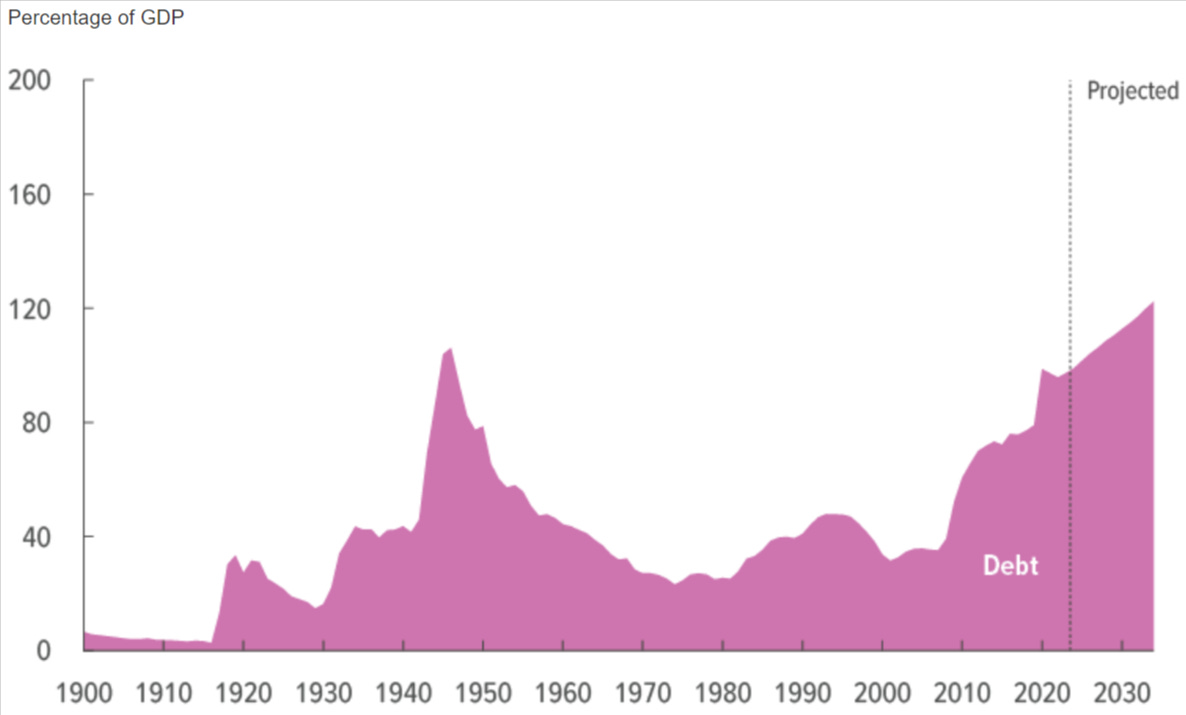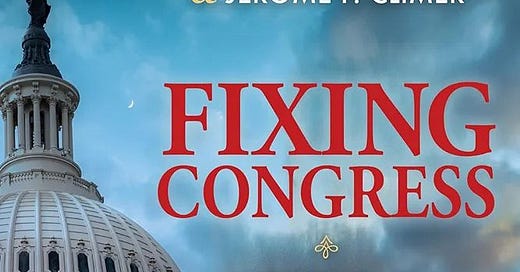Fixing Congress: Restoring Power to the People
And an upcoming event on Congress and the agencies in the post-Chevron world.
An Interview with Michael Johnson, Coauthor of Fixing Congress: Restoring Power to the People
I had the pleasure of chatting with Michael Johnson, coauthor of the book Fixing Congress: Restoring Power to the People (Morgan James Publishing, 2024). Johnson and his coauthor Jerome Climer each have been around Capitol Hill for more than four decades. You can listen to our chat here.
Life After Chevron: How Will Congress and Federal Agencies Adapt?
On Tuesday, July 16 the American Enterprise Institute and the Brookings Institution’s Katzmann Initiative will host a mini-conference on this hot topic. Lunch will be served. Below is the program’s agenda. You can register to attend or watch it online here.
12:15 p.m.
Welcome:
Adam J. White, Senior Fellow, American Enterprise Institute
12:20 p.m.
Keynote Conversation
Participants:
Heidi Heitkamp, Former US Senator, North Dakota
Patrick Toomey, Former US Senator, Pennsylvania
Moderator:
Yuval Levin, Director, Social, Cultural, and Constitutional Studies, American Enterprise Institute
12:55 p.m.
Break
1:00 p.m.
Panel I: Congress After Loper
Panelists:
Kevin R. Kosar, Senior Fellow, American Enterprise Institute
Molly E. Reynolds, Senior Fellow, Governance Studies, Brookings Institution
Philip Wallach, Senior Fellow, American Enterprise Institute
Moderator:
Eleni M. Roumel, Judge, US Court of Federal Claims
1:45 p.m.
Q&A
1:55 p.m.
Break
2:00 p.m.
Panel II: The Agencies After Loper
Panelists:
Jonathan H. Adler, Johan Verheij Memorial Professor of Law, Case Western Reserve University School of Law
M. Anthony Mills, Director, Center for Technology, Science, and Energy, American Enterprise Institute
Rachel Augustine Potter, Associate Professor of Politics, University of Virginia
Moderator:
Kathryn Dunn Tenpas, Director, Katzmann Initiative on Improving Interbranch Relations and Government, Brookings Institution
2:45 p.m.
Q&A
3:00 p.m.
Adjournment
Speaking of the demise of Chevron deference
My colleague Philip Wallach published a fine piece in the New Atlantis: “Will Congress Take the W on Chevron?” He writes,
The last time the Supreme Court itself decided a case based on Chevron was in 2016. Loper Bright clarifies and accelerates a shift already underway, one that reflects diminishing trust in technocratic policymakers, whose claims have often unconvincingly cloaked thoroughly political decisions in the guise of scientific expertise. The presumption in favor of executive branch actors has been eroding for some time; now it is decisively repudiated….
[T]hose of us who will defend the Court’s ending of the Chevron era have a more hopeful vision for the long run. Put simply, we think that it is healthy if Americans stop imagining that policymaking ought to originate in the executive branch. We think the ambiguities and silences of past lawmakers are not a sufficient foundation for the ambitious plans of current technocrats, at least not if we want the public to find governance legitimate in this difficult political environment.
One last thing: America is going broke

The recent Supreme Court rulings and President Joe Biden’s disasterous debate performance have sapped public attention from the recent, bad news about our nation’s finances. On June 19 the Congressional Budget Office projected this year’s deficit would be $1.9 trillion, which is $400 billion higher than expected. America’s debt is $35 trillion, or 99 percent of our country’s gross domestic product. And the financial picture is going to keep getting worse.
Phil Wallach write a fine paper some months back titled, “Picking the Wrong Fights: Why We Must Fix Our Broken Budget Process.” He writes:
America’s debt-service burden is quickly becoming crushing, with interest payments likely to rise to almost 4 percent of gross domestic product within a decade. In other words, American taxpayers will soon pay as much to service the debt incurred by past spending as they do on current national defense or nondefense discretionary spending. This may well lead to economic problems, but even if it does not, it will crowd out other important priorities and stoke political resentments.
He also observes that the current congressional bugdet process “channels criticism of debt accumulation into fights over discretionary spending, which now represents less than a third of total federal spending.” Thus, if we ever are going to right our nation’s financial ship then we need fix the budget process so that fight within Congress and between the legislative and executive branches are more susbstantive.




